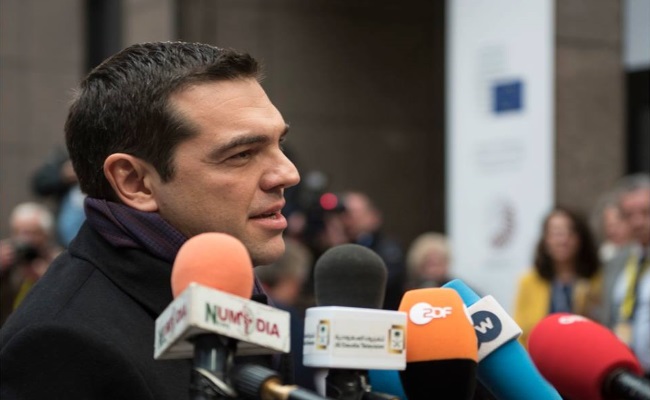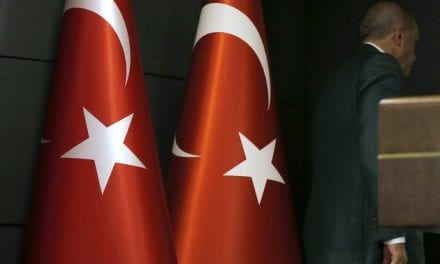by Rebecca Christie & Jonathan Stearns, Bloomberg
Greece must submit a more concrete reform plan to euro-area authorities so that bailout talks can speed up, European Union leaders said after nearly four hours of talks with Greek Prime Minister Alexis Tsipras in Brussels.
With EU chiefs warning that time is running out for Greece to overcome a standoff over aid, German Chancellor Angela Merkel and French President Francois Hollande said that the Greek government needed to submit new measures rapidly.
“Now we have to take that at face value and say we trust that this will happen,” Merkel, who heads the biggest country contributor to Greece’s 240 billion-euro ($256 billion) bailout, told reporters in the early hours of Friday morning. “And then we’ll see what comes.”
Leaders took a more active role in the Greek negotiations in a bid to push past the logjam that has stymied Tsipras’s efforts to unlock bailout cash since he came to power in January on a platform of ending the austerity tied to aid. Without a breakthrough, Greece could run out of money as soon as this month as debt payments and monthly salaries and pensions come due.
Tsipras, speaking to reporters after the meeting which he had requested on the sidelines of the two-day summit, said that talks are now back on track and all sides are doing their best to overcome Greece’s troubles.
Greek List
“There was confirmation of the will of all sides to work so as to restore the financing ability of the Greek economy as soon as possible,” Tsipras said. Greece will submit and enact its own list of structural reforms, according to the Greek premier, who said he’s more optimistic after the meeting.
Greece needs to roll over 1.6 billion euros of short-term notes due Friday. The euro area’s most indebted nation is also scheduled to repay about 350 million euros to the International Monetary Fund, while interest due on four bonds held by the European Central Bank totals about 110 million euros.
Greek three-year bonds extended declines Friday, with the yield rising 14 basis points to 23.88 percent at 9:56 a.m. in Athens on Friday, the highest level since the notes were first issued in July. The euro rose 0.1 percent to $1.0675.
“Greece wants to be master of its own reforms,” Hollande said after the talks with Tsipras. “What its European partners want is that the reforms be in line with the Feb. 20 agreement” to extend its current rescue program through June.
Berlin Talks
Euro-area finance ministers, the more usual forum to discuss Greece, are prepared to meet again “as soon as possible” if Greece can fulfill its February pledges, according to a joint statement by EU President Donald Tusk, EU Commission President Jean-Claude Juncker and Jeroen Dijsselbloem, the Dutch finance minister who leads meetings of his euro-region counterparts.
At last month’s summit — Tsipras’s first encounter with his fellow EU leaders — Merkel sought to keep bailout talks at the level of finance ministers. She’s now stepped up her role and is slated to meet Tsipras again on Monday in Berlin.
While citing a “good and constructive talk” with Tsipras, the German chancellor said the meeting reflected “a certain disappointment” that Greece hasn’t made more progress since the February deal and said the government will have to meet rescue commitments before it can tap EU funds. Without offering any specific amounts, she said these conditions apply to remaining bailout money and also to profits from central bank purchases of Greek bonds.
Greece meanwhile said it will fulfill debt obligations that are due Friday, and an EU official said the cash-strapped government may have enough money to tide it over until April.



















